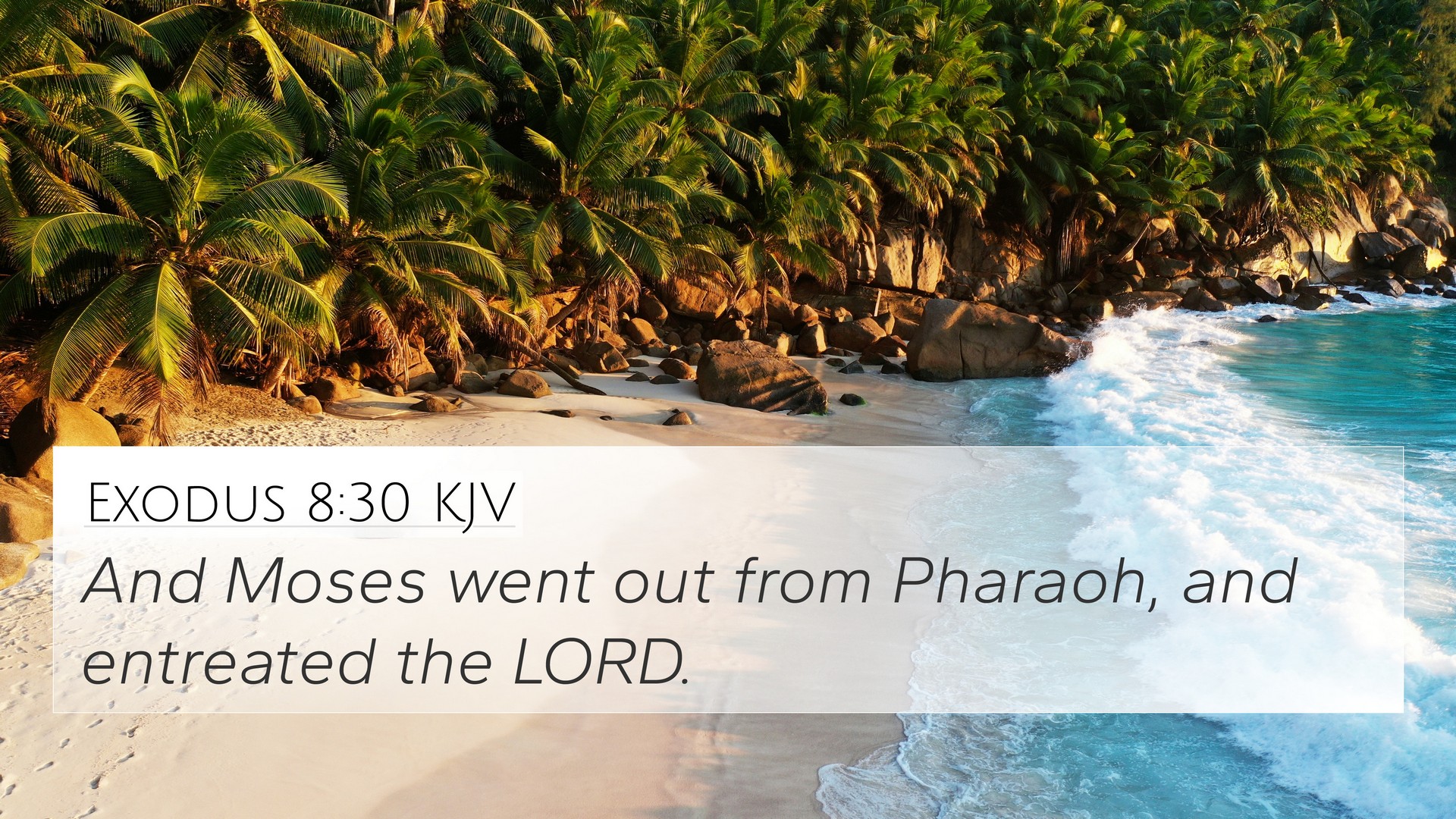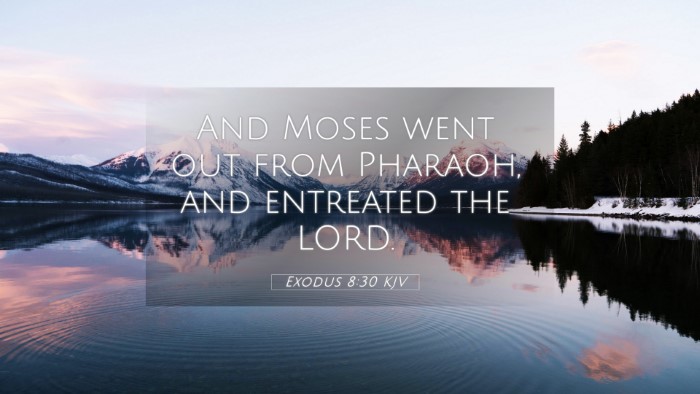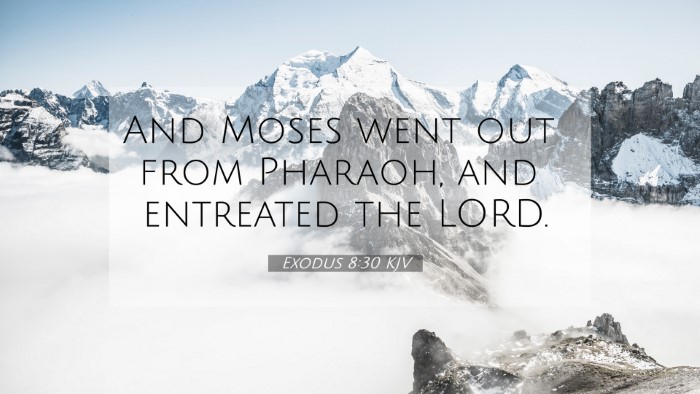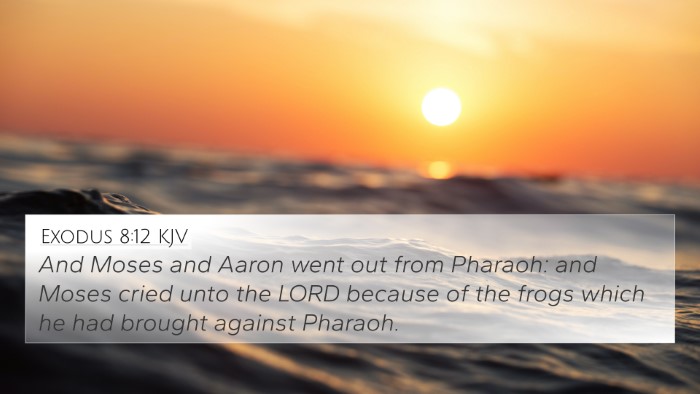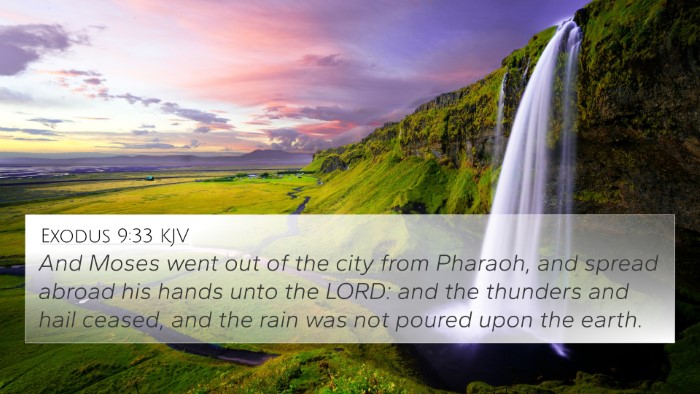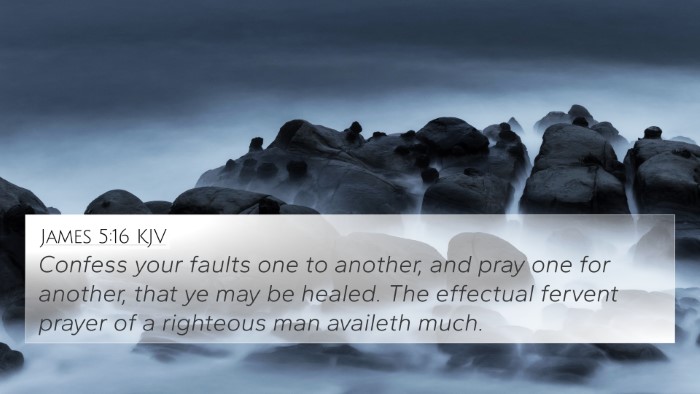Understanding Exodus 8:30
Exodus 8:30 states: "And Moses went out from Pharaoh, and entreated the Lord." This verse captures a significant moment in the narrative of the Exodus, illustrating the ongoing dialogue between Moses and God amidst a backdrop of Pharaoh's stubbornness.
Summary of Commentary Insights
This verse captures several key themes that are elaborated upon in public domain commentaries:
- Intercession: Moses is seen as an intercessor between the people of Israel and God, a role he fulfills by seeking the Lord’s help against the oppression of Pharaoh.
- God's Sovereignty: The act of Moses going out to plead with God highlights God’s ultimate control over the situation, demonstrating that despite Pharaoh's pride, it is God who holds authority over both the Israelites and the Egyptians.
- Faith and Obedience: Moses’ decision to turn to God for assistance showcases his faith and obedience, serving as an example for believers to rely on God in times of difficulty.
Connections Between Bible Verses
This verse resonates with several other scriptures, emphasizing the interconnectedness of biblical narratives. Here are some relevant cross-references:
- Exodus 3:10: "Come now, therefore, and I will send you to Pharaoh, that you may bring My people, the children of Israel, out of Egypt.” – This verse shows the initial commissioning of Moses, establishing his role as a leader.
- Exodus 9:27: "And Pharaoh sent and called for Moses and Aaron, and said to them, 'I have sinned this time. The Lord is righteous, and my people and I are wicked.'" – Pharaoh's acknowledgment of sin reinforces the theme of divine authority.
- 1 Timothy 2:1: "Therefore I exhort first of all that supplications, prayers, intercessions, and giving of thanks be made for all men," – This New Testament verse parallels the intercessory role of Moses.
- Psalm 6:9: "The Lord has heard my supplication; the Lord will receive my prayer." – Illustrates God's responsiveness to prayer, akin to Moses' appeal.
- James 5:16: "Confess your trespasses to one another, and pray for one another, that you may be healed. The effective, fervent prayer of a righteous man avails much." – Encourages intercessory prayer much like that of Moses.
- Exodus 10:3: "So Moses and Aaron came in to Pharaoh and said to him, 'Thus says the Lord God of the Hebrews: 'How long will you refuse to humble yourself before Me?'" – Continues the theme of Moses confronting Pharaoh.
- Matthew 7:7: "Ask, and it will be given to you; seek, and you will find; knock, and it will be opened to you." – Relationships between effective prayer are thematically consistent with Moses' actions.
Thematic Analysis
The themes found in this verse align closely with others in both the Old and New Testaments. This demonstrates the strength of Bible verse parallels and connections between Bible verses. It shows us how God desires a relationship with His people, characterized by communication and devotion.
Tools for Bible Cross-Referencing
For those interested in exploring the cross-referencing Bible study, numerous tools can assist in making these connections clearer:
- Bible Concordance
- Bible Cross-Reference Guide
- Bible Reference Resources
- Comprehensive Bible Cross-Reference Materials
Conclusion
Exodus 8:30 invites readers to appreciate the profound intercession of Moses while emphasizing God's sovereignty and the importance of faith. Asserting the value of inter-Biblical dialogue allows for enriched understanding through comparative Bible verse analysis.
